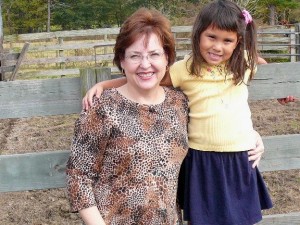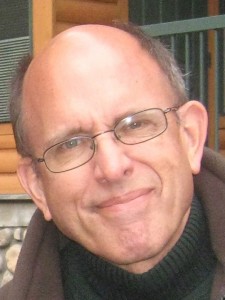
Born:
Duncan, Oklahoma
Grew Up In: Oklahoma, Colorado, Wyoming and Alaska
Education: B.A. Economics, Yale University; MFA Creative Writing, U. of Houston
Short Stories: The Atlantic Monthly, The New Yorker, Rolling Stone, Cosmopolitan, and various journals
Books: Home Ground (short story collection), Exotic (novel)
Awards: John Irving First Novel Prize, Rattle Magazine Poetry Prize, James Culp Distinguished Prof. of English 2008-11
Recent Publication: “Take Nothing For the Journey Except a Staff: Teaching Fiction Workshop,” chapter in The Word in the English Classroom, ACU Press 2009.
Spouse: Joyce Haley teaches advertising classes in the JMC Department
Child: Coleman Haley is a middle schooler at Abilene Christian Schools, an omnivorous reader and a fan of multi-syllabic rare words
What Others Have Said About Albert Haley’s Work
HOME GROUND: Stories of Two Families and the Land
“It accumulates through self-contained narratives an ambitious near-novel rich in meaning…” The New York Times
“…the best fiction we have about contemporary Alaska.” Larry McMurtry
“I think Home Ground is terrifc.” Raymond Carver
EXOTIC
“Exotic takes off like a rocket.” L.A. Times
“It’s easy to see oneself in this novel…. Exchanges between the newly married pair echoed through my mind like conversations out of my own bedroom, laying bare forgotten pains.” The Oakland Press
“Read as a fable of two fallible mortals who say no to some things and yes to others, Exotic is as sweet and satisfying as a papaya peeled and presented by the one you love.” L.A. Herald Examiner
In the Beginning
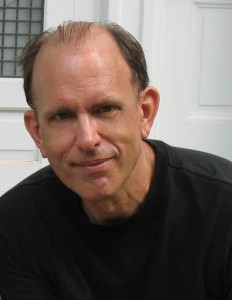
On the porch of Wm. Faukner's house, Oxford, MS 2006
When Al and Joyce Haley arrived at ACU in the fall of 1997, William Jefferson Clinton was embarking upon his second term as president. Princess Diana had died after being pursued by papparazi into a fatal Paris tunnel. Consumer Reports again opined that there had never been more reliable cars made than those bearing the Toyota badge.
In the world of American publishing three of the best novels Al has ever read appeared that year: Don DeLillo’s Underworld, American Pastoral by Philip Roth, and The God of Small Things by Arundhati Roy. At the movies the buzz was that director James Cameron had squandered a hundred million dollars on a romantic film that was bound to be a box office bust. Come December, Titanic would prove the cynics wrong.
As for Abilene there was no Cinemark movie multiplex or Old Navy. On the ACU campus plays were performed in the dark, grim echo chamber of Sewell Theater and, if students wanted to jog around campus, they took their chances navigating bumpy grass and dodging gopher holes; the Lumsford Trail wasn’t even yet a rumor. As for technology, student cell phones were as rare as West Texas rain. In the English Department computer writing labs Al noted instructions at each station telling students how to use the mouse.
Flash ahead a decade and a bit more and we’re well into the 21st Century. Much has changed at ACU and all of it is for the better as Al states in the brief interview that appears below.
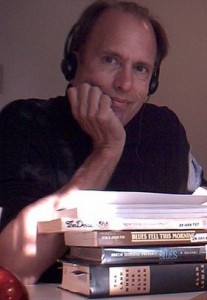 Q & A With Al Haley
Q & A With Al Haley
What the best thing that’s happened for you in your time at ACU? That’s easy. It’s been having the opportunity to help build undergrad creative writing to the level where we now have three different genre workshops each year (poetry, fiction, creative nonfiction) and that the students coming out of the workshops regularly see their work recognized in national and regional contests. Just since 2002 our students have won 9 firsts and 13 seconds. Nothing gets me more excited than having students produce excellent writing and seeing others validate it for them.
As the Culp Professor what are you currently working on? I’m revising a novel with the working title of Evangel. It’s about four couples living in the suburbs who get together every Sunday night to share what’s happening in their lives and pray. The drama is that miraculous things seem to be happening to each of them when no one else is around. “Evangel,” by the way is the old way of referring to the four gospels collectively.
Do you have anything else you plan to write in the short term? Yes. I’ve written a few poems about extra-biblical moments in the life of Jesus. I’d like to write enough of these poems to have a whole book. My intention is to focus on the humanity of Christ which I think is often overlooked. At times he must have been dusty and had blisters on his feet. We read about his baptism by John in the river Jordan, but what was it like when Jesus had to take an ordinary bath?
How do you go about writing something? It begins at 5:30 a.m. with a cup of coffee while everyone else in the house is asleep. I almost always write about something I’ve already been going over in my mind. I may have a few notes at hand, too. I write pretty quickly on my trusty Dell laptop. A thousand words an hour? I’m not very conscious of what the exact words are that I’m writing. It’s only when I’m revising that I see some things and I’m surprised and think, hey, that’s pretty good, did I write that? More often I’m horrified—Oh no, how could I have gone off on such a self-indulgent, cliché tangent? Thank heavens for the delete key.
What are some inspirations for your work? For me it starts with Ernest Hemingway, all of whose books I’ve read and continue to read. Hemingway shows me how to activate the reader’s senses to make him or her feel like they are walking around in the story. That’s the effect I strive for, a sort of virtual reality in prose. I also love how the Russians (Dostoevsky, Tolstoy) wrestle explicitly with what the world means. My other inspiration comes from music. I love the grand passions of classical music. I’ve also absorbed the rhythms and the impolite attitude of rock ‘n’ roll. I like for my fiction and poetry style to be energetic and urgent as if I’ve got the reader by the lapels and I’m saying, hey, you’ve got to hear these words.
Tell us about the most recent book you read. I have to single out And Then We Came to the End by Joshua Ferris because it just really wowed me. This 2008 novel is narrated by an anonymous “we” who tells the stories of various white collar workers at a Chicago advertising agency as layoffs are starting to affect everyone. It’s a bit like The Office, including some of the crazy things people do at work, but it has a hundred times more pathos. You realize how wounded all these people are and that the folks at work function as family. It’s just a masterful first novel. I’m happy to say it was recommended to me by one of my former students.
What are you really like? Honestly, I”m an extremely shy person. That’s why for the first four decades of my life I never imagined myself standing in front of 15-20 people, opening my mouth and telling everyone what to do. Because of my introversion I long ago fled to writing. I think of a Hemingway quote: “The writer must write what he has to say, not speak it.” When I wrote, I was free to be anyone I wanted; I could communicate in the boldest fashion possible. Obviously, I had to change my ways once I decided to become a professor. Without the help of God I don’t think I could even have done it. These days I still enjoy my time alone, but I now know what I was missing when I sequestered myself all those years and tried to avoid having much contact with people. And I have to say I really enjoy being around students–because of their energy and special perspective and because they don’t have their minds made up about everything.
What do you think is the most important thing in the Bible? For me it has to be love the Lord your God with all your heart, mind and soul and love your neighbor as yourself, but… Lately, I’ve become enamored of Jesus’ final words at the end of the Gospel of Matthew. Not the “go ye into all the world,” but the absolutely final statement: I am with you until the end of the world. This is what I’ve seized upon, the idea that Jesus in the form of the Holy Spirit is actually with me. Invisible but present. Whatever I’m going through, I can’t claim to be abandoned because he’s so close I can reach out and touch him.
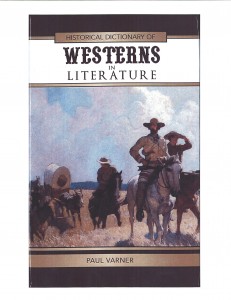 Since coming to ACU in 2007, Varner has written three books on the literature of the American West. The books provide the latest information on scholarship, scholarly approaches, critical terminology, and essential information for scholars pursuing serious literary and cultural study of Western literature and critical analysis for the essential authors and novels of the West.
Since coming to ACU in 2007, Varner has written three books on the literature of the American West. The books provide the latest information on scholarship, scholarly approaches, critical terminology, and essential information for scholars pursuing serious literary and cultural study of Western literature and critical analysis for the essential authors and novels of the West.
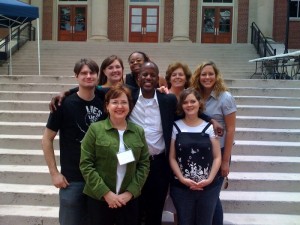 Eight English faculty and graduate students attended the
Eight English faculty and graduate students attended the 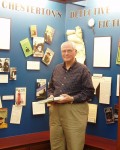 Dr. Chris Willerton is home from a successful research trip to the Midwest and New York. He’s on administrative leave during spring 2010, a reward after 25 years as ACU’s honors director, and is using the opportunity to continue his work in detective fiction and theology.
Dr. Chris Willerton is home from a successful research trip to the Midwest and New York. He’s on administrative leave during spring 2010, a reward after 25 years as ACU’s honors director, and is using the opportunity to continue his work in detective fiction and theology.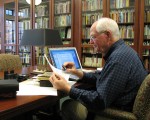 on Christianity and Literature, in New York. This was the first CCL regional meeting to feature detective fiction, and it drew papers on Chesterton, Sayers, Collins, Chandler, and even J. K. Rowling.
on Christianity and Literature, in New York. This was the first CCL regional meeting to feature detective fiction, and it drew papers on Chesterton, Sayers, Collins, Chandler, and even J. K. Rowling.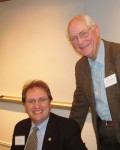
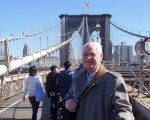
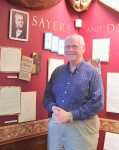
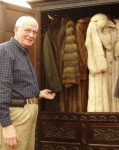 The Wade is an internationally known research center for Lewis, Tolkien, Sayers, Chesterton, Charles Williams, and others associated with the Oxford Christians. Its artifacts include desks used by Tolkien and Lewis and the wardrobe that helped inspire
The Wade is an internationally known research center for Lewis, Tolkien, Sayers, Chesterton, Charles Williams, and others associated with the Oxford Christians. Its artifacts include desks used by Tolkien and Lewis and the wardrobe that helped inspire 

 Q & A With Al Haley
Q & A With Al Haley
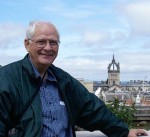 Dr. Chris Willerton came to ACU in 1970, fresh from his BA at TCU and his MA at the University of North Carolina. He went back to UNC in 1973 for doctoral work, returned to ACU in 1976, and hasn’t budged. In 1985 he became founding director of the ACU Honors Program. Having overseen its transition to Honors College, he phased out of administration in spring 2010 and continues as professor of English and Honors Studies.
Dr. Chris Willerton came to ACU in 1970, fresh from his BA at TCU and his MA at the University of North Carolina. He went back to UNC in 1973 for doctoral work, returned to ACU in 1976, and hasn’t budged. In 1985 he became founding director of the ACU Honors Program. Having overseen its transition to Honors College, he phased out of administration in spring 2010 and continues as professor of English and Honors Studies.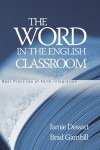
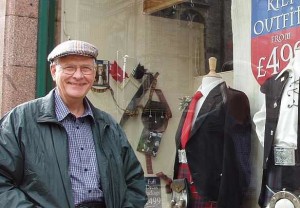
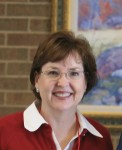 Dr. Nancy Shankle, professor of English, is in her 20th year at Abilene Christian University, having served 5 years as Director of Composition, 2 years as Scholar-in-Residence, and 18 years as Director of Writing Across the Curriculum. She is in her 10th year as Chair of the English Department.
Dr. Nancy Shankle, professor of English, is in her 20th year at Abilene Christian University, having served 5 years as Director of Composition, 2 years as Scholar-in-Residence, and 18 years as Director of Writing Across the Curriculum. She is in her 10th year as Chair of the English Department.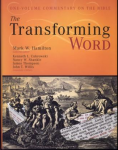 Dr. Shankle completed her doctoral studies at Texas A&M University, studying early American literature, rhetoric and composition, and linguistics. For her dissertation, she edited 3 sermons by colonial preacher George Whitefield and completed a bibliography of his extant sermons. Dr. Shankle has also published in linguistics and grammar anxiety and co-edited The Transforming Word: A One-Volume Commentary on the Bible.
Dr. Shankle completed her doctoral studies at Texas A&M University, studying early American literature, rhetoric and composition, and linguistics. For her dissertation, she edited 3 sermons by colonial preacher George Whitefield and completed a bibliography of his extant sermons. Dr. Shankle has also published in linguistics and grammar anxiety and co-edited The Transforming Word: A One-Volume Commentary on the Bible.